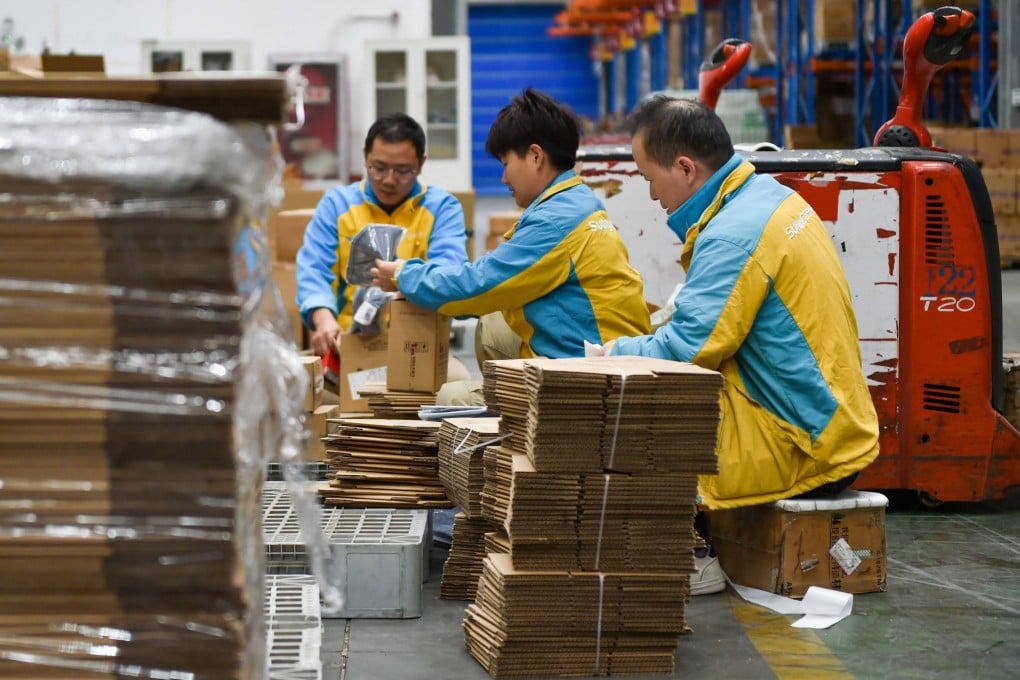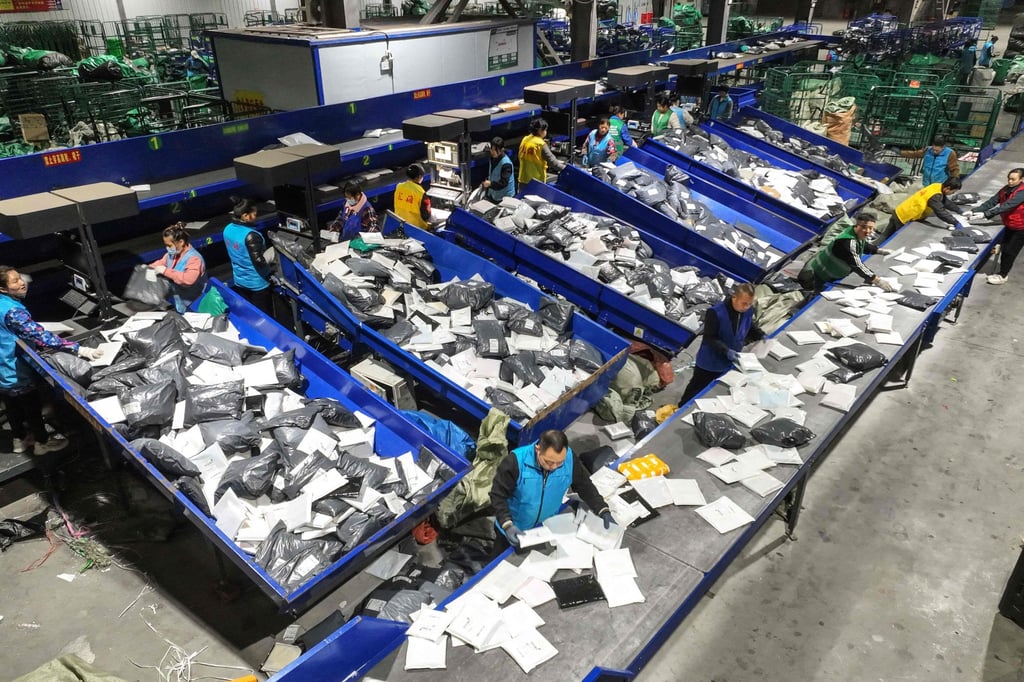China urges green transition for courier sector as e-commerce boom leaves a trail of packaging waste
- Beijing aims to establish a standard system for green packaging by the end of 2025, and ban the use of toxic and harmful materials
- China’s express delivery industry consumes more than 9 million tons of paper and about 1.8 million tons of plastic each year

China’s decarbonisation campaign has its cross hairs trained on the country’s mountain of discarded courier packaging material as the volume of parcels delivered hits a record high while Beijing is scrambling to meet its ambitious climate goals.
The country aims to establish a standard system for green courier packaging by the end of 2025, and ban the use of toxic and harmful materials, according to a joint action plan unveiled by the central economic planner National Development and Reform Commission (NDRC), State Post Bureau, and six other state authorities.
China’s express delivery industry consumes more than 9 million tons of paper and about 1.8 million tons of plastic on average each year, according to data released by the eight state departments in 2020.
